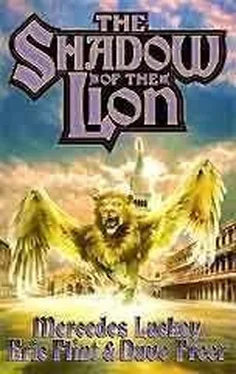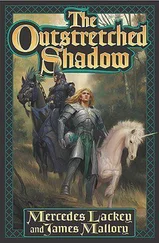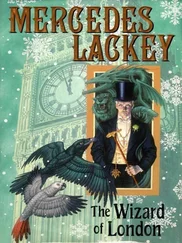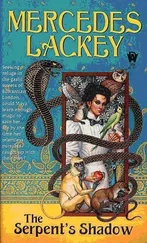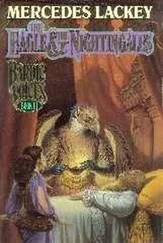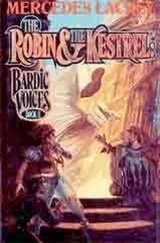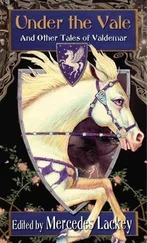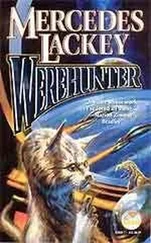They were watching him now--Kat, with one hand at her throat and the other clutching her medallion; and Lucrezia. Lucrezia had a cruel smile on her face and a long steel and silver dagger in her hand. The handle like a dragon, or a winged serpent, with eyechips of ruby. Marco's arms fell to his sides; he felt frozen with fear and indecision. They all seemed frozen in time, insects caught in amber.
Something cold touched his foot, and he jerked out of his paralysis. He looked down. The puddle of spilled liquid oozed across the patterned marble and touched his foot, mingled with a thin trickle of blood coming from Luciano's outstretched wrist. And a mist passed over it for a moment, and Marco saw, as if from above, Venice burning. Children screaming, dying. And the body of Kat sprawled, abused. And then a sequence of people he knew, and loved. Gutted. Raped. Burned. And the face of Lucrezia . . .
Laughing, with a great darkness behind her. He knew it for a true scrying vision of the future. A future which Luciano--his friend and in many ways, more truly a father to him than his own blood had been--had been prepared to sacrifice himself to prevent. Perhaps, when he failed, Luciano had dared use his last life-blood, the last of his own magical power, not to save himself, but for this vision. So that Marco would know the consequences of failure, and act.
Marco took up the bronze knife, put it against his chest and began to read the words from the ancient book. From outside the enchanted circle Lucrezia gaped. If he read her lips aright before the brightness and mist engulfed him, she was saying "No!"
* * *
"No! Caesare!" Benito looked down from the barricade he'd just climbed.
Caesare Aldanto looked up from Maria. He had an arm around her neck, and a knife against her breast. "I nearly killed her when she came through the gap," he said, conversationally. "Quite a reunion, this. Where's that brother of yours? Also around?"
"Why?" demanded Benito. "Do you want to make a clean sweep of the Valdostas?"
Benito tried to figure out what do next. He had an arquebus in his hands. But the weapon was far too inaccurate--even in the hands of someone expert in its use--to risk a shot at Caesare. As inexperienced as Benito was with firearms, he'd more likely kill Maria. But Benito made himself a promise that if anything happened to Maria . . . he'd blow Caesare's mocking, smiling face apart. At this range, not even Benito would miss.
"Now, why would I do that, Benito?" said Caesare. "I've always looked after you."
Benito scrambled down. Other Arsenalotti faces appeared. But there were several of Caesare's men too, all with arquebuses.
"You got money from Ferrara, for looking after us," said Benito coldly. "It's sitting at Giaccomo's. You never really did anything for any reason except for money, did you?"
Caesare snorted. "What other reason is there?"
Benito smiled. "Tell you what, Caesare. I'll show you another reason. You let her go and I'll fight you."
It took Caesare a moment for the implication to sink in. "Maria?" he said, incredulously. "You love this--peasant?"
"I dunno about 'love,' " said Benito carefully. "But I care a whole damn lot about her. Use the word 'love' if you want. So I'll fight you for her freedom."
Aldanto laughed. "Cocky little brat, aren't you? At your age you think you're immortal and you expect to win."
"No," said Benito calmly. "I don't. But you'll have to let Maria go."
* * *
"NO!" yelled Lucrezia, gazing in horror at Marco and the knife. She looked around wildly.
"I must stop him. Kill him! Come here, girl! I need you."
For an instant, Kat felt the sheer power and compulsion of that voice. Then, a further warmth, a heat, a fire spread from the Saint Hypatia medal that she held, and with a shake like a spaniel pulled from the dirty water of a canal, she shook off the compulsion.
Instead of answering Lucrezia's beckoning hand, she pulled her pistol from her reticule. She'd reloaded five times in the fighting. The last time she'd had to take powder from a dead arquebusier. But the balls he'd carried had been too big. So she'd filled the barrel of the pistol with some metal junk from a ruined shop. Thrust it down and hoped it would work.
Lucrezia laughed. "Your little toy won't do me any harm, you stupid child! Do you think I haven't taken the simplest of precautions? I command the spirits of air and water and darkness! The powder won't fire, the balls will miss!" As Kat hesitated--can that be true? Can she really do that?
Lucrezia sneered at her. "Besides. You don't know how to use that silly thing, anyway."
Doubt assailed her and once again, Lucrezia was using all her powers. Kat wanted to drop the weapon. Run closer.
Warmth rushed over her again, and--
--a glowing, delicate hand, insubstantial as a kiss and warm as life, closed over the hand that held the pistol.
She squeezed the trigger instead.
The metal junk cut into Lucrezia, who had half-turned, ready to throw her knife. It knocked Lucrezia to the floor.
Lucrezia screamed; and of all the screaming Kat had heard that day, this was, by far, the most horrible sound she had ever heard in her life. It went on, and on, and on, as Lucrezia writhed on the floor, thrashing spinelessly, her thrashing as horrible as the scream.
And then, the woman's body began to change. Metamorphose.
* * *
The point of the knife broke the skin, and a single drop of blood formed on the blade. Strangely, there was no pain.
Before he could press harder and end the ritual with his own death, something--took him.
The light, the mists, thickened again in an instant, golden, sweet, the honey of the Jesolo, and held him so that he could not move.
Light blinded him, and light permeated him. It became him, and he felt himself change . . . felt a roaring in his ears that came from his own throat, felt great golden wings spring from his back and begin to grow and grow.
"It's been a long time," said the great voice that was within him, but was not him. Huge muscles flexed and stretched. His golden hide twitched. He was no longer indoors. Instead, from the column-top, he looked out over fog-shrouded Piazza San Marco.
"So. A Valdosta again, is it?" said the great voice. "Last time it was a Montescue. They're more bloody minded." Marco felt his wings extend, though he was not the one to flex his muscles, stretch his claws, spread his wings.
"Who . . . who are you?" he asked timidly.
There was a roar of laughter, warm and full. "I am you. And you are me. You have taken up the Crown as well as the Mantle--the first to do so in many centuries. And we are the Lion . . . the Lion of Venice, now. The Lion of Etruria that was."
The back and shoulder muscles tensed, enormous wings beat down in a great surge of power, and the lion bounded up through the cloud and out into endless blue of the sky.
"The Lion of Saint Mark?" Marco looked down as the Lion looked down. Fog was streaming away from the downbeat of the great wings. Below he could already see the piazza, clear of all but the last wisps of it.
Again the Lion laugh-roared. "Saint Mark! I nearly ate him. He wasn't even the Mark of your Four Books, you know. You little children, you've confused him with one of my Romans! A secret Christian, that Roman, a Christian who hid his fellows in the Jesolo--Marcus Fidelus--that was what they called him, Mark the Faithful, and you people managed to get him confused with the other! 'Hic requiscet corpus tuum-- On this spot your body shall rest.' It was meant as a threat, not a prophecy."
The Lion roared with laughter, and Marco had to admit it was rather funny.
"But that Marcus was pious enough, and holy enough, and had the magic--the magic--even if up until that moment he didn't know it. I knew it. And you four little swamp thieves--Terrio, Montescue, Lacosto, and Valdosta--you that had set out to rob him and instead became his converts, begged for his life. You were my people, and he won you! Won you fairly! But you were my people, and when you begged--what was I to do? I let him live, and gave him leave of my domain. Ha. Not only did he make free of my marshes, he also took seizin of me, to come and go and look and know. He became one of mine, save only that he was first and always the child of Christ. And in exchange that we be of one heart, and would I still hold sovereignty here and not be driven from the place by later mages of Christ, that my people be free to make their own choices in who they serve--he laid this form on me, this binding with the blood of the four families. I think it a good bargain. I steer my families and look after my lagoon, my marshes, and my islands. And sometimes, when the need is dire, they take the Crown and they steer me." The great, laughing roar shook the body again. "So. Steer me, Valdosta. What do we need to do?"
Читать дальше
